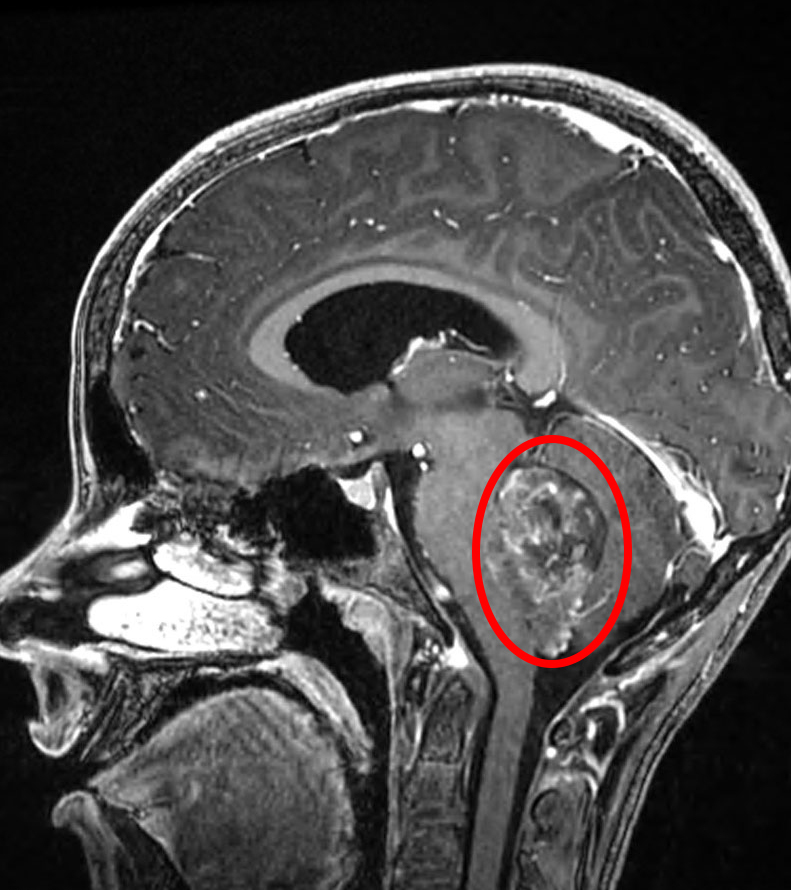Ependymoma

Contact Us
Related Videos :
Frequently Asked Questions :
1. What is the prognosis for ependymoma?
The prognosis depends on factors such as the tumor’s location, grade, and the patient’s age. With timely and proper treatment, many patients achieve a good quality of life. Survival rates for low-grade ependymomas are generally high, while anaplastic ependymomas may require more aggressive treatment.
2. Can ependymoma recur after treatment?
Yes, ependymomas can recur, especially high-grade tumors. Regular follow-up care and monitoring with MRI scans are essential to detect recurrence early.
3. Is ependymoma hereditary?
In most cases, ependymoma is not hereditary. However, certain genetic conditions may increase the risk.

About Ependymoma
Ependymoma is a type of tumor that originates from ependymal cells, which line the ventricles of the brain and the central canal of the spinal cord. These tumors can develop at any age, but are most common in young children and adults between the ages of 20 to 40. Ependymomas can occur in the brain or spinal cord and are considered to be part of a group of gliomas, with varying degrees of severity depending on the location and grade of the tumor.
Causes of Ependymoma
The exact cause of ependymoma is still unknown. However, it is believed that genetic mutations may play a significant role in the development of these tumors. Some patients might have an inherited predisposition, although this is rare. Factors such as exposure to radiation or environmental toxins may also contribute to the formation of these tumors.
Types of Ependymoma
Ependymomas are classified into several types based on the location and the appearance of the cells under a microscope:
- Subependymoma: Usually slow-growing and occurs in adults.
- Myxopapillary Ependymoma: Often found in the lower spinal cord, typically slow-growing.
- Classic Ependymoma: The most common type found in both children and adults, can occur in the brain or spinal cord.
- Anaplastic Ependymoma: A more aggressive and fast-growing variant, often requiring more intensive treatment.
Symptoms of Ependymoma
The symptoms of ependymoma depend on the location of the tumor. Common signs may include:
Brain Ependymoma Symptoms:
- Headaches
- Nausea and vomiting
- Vision problems
- Balance and coordination issues
- Seizures
Spinal Cord Ependymoma Symptoms:
- Back pain
- Numbness or tingling in the limbs
- Weakness in the arms or legs
- Difficulty walking
- Loss of bladder or bowel control
Diagnosis of Ependymoma
Accurate diagnosis of ependymoma involves several steps:
- Neurological Examination: A thorough physical and neurological exam to check for signs of a tumor.
- MRI or CT Scans: Imaging tests that help in identifying the size, location, and characteristics of the tumor.
- Biopsy: A tissue sample may be taken to confirm the diagnosis and determine the grade of the tumor.
- Spinal Tap (Lumbar Puncture): This may be done to check if cancer cells are present in the cerebrospinal fluid.
Treatment Options for Ependymoma
Treatment for ependymoma typically involves a combination of surgery, radiation therapy, and, in some cases, chemotherapy.
- Surgical Resection: The primary treatment for ependymoma is surgery. Dr. Sandeep Vaishya specializes in advanced neurosurgical techniques to safely remove as much of the tumor as possible, minimizing damage to surrounding tissues.
- Radiation Therapy: After surgery, radiation therapy may be recommended to destroy any remaining tumor cells, especially for higher-grade or recurrent ependymomas.
- Chemotherapy: While less commonly used, chemotherapy may be an option for some patients, particularly in cases where the tumor has spread or recurred.
Cost of Ependymoma Treatment and Stay in India
India offers world-class medical care at a fraction of the cost compared to many Western countries. Under the care of Dr. Sandeep Vaishya, you can expect high-quality treatment with personalized care. Here’s an overview of the costs:
- Cost of Surgery: The average cost of ependymoma surgery in India ranges between $6,000 to $10,000, depending on the complexity of the case and hospital facilities.
- Radiation Therapy: The cost of radiation therapy ranges between $3,000 to $5,000.
- Cost of Chemotherapy: Chemotherapy may cost around $1,000 to $2,000 per cycle, depending on the drugs used.